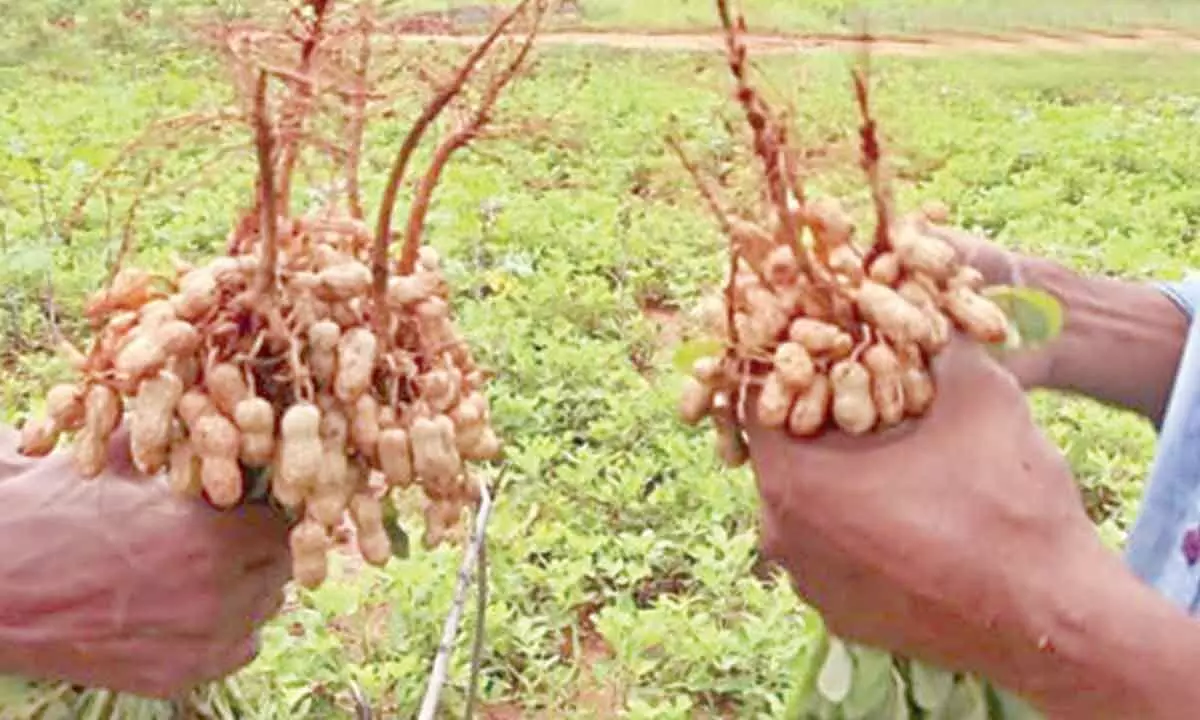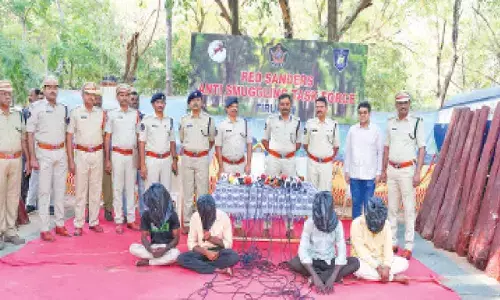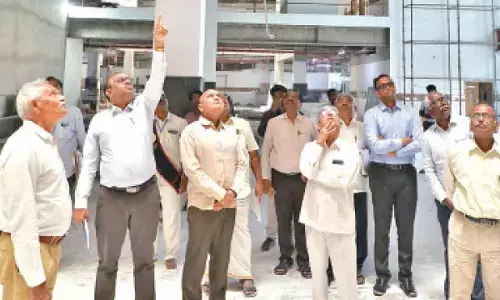Poor quality seeds dash kharif hopes of farmers

Photo for representational purpose only
Lack of government control and sample checks are leading to proliferation of spurious seeds in the twin districts.
Anantapur-Sathya Sai: Lack of government control and sample checks are leading to proliferation of spurious seeds in the twin districts. As a result, farmers are incurring losses due to poor germination and poor flowering, even from seeds supplied by Rythu Bharosa Kendras (RBKs).
As the kharif season has begun with the onset of monsoon, the rampant circulation of spurious seeds has become a cause for concern to farmers across the undivided district.
Farmers were overjoyed when the southwest monsoon brought rains abundantly, but it has turned into a woe with the groundnut crop sown in close to 5 lakh hectare in the district getting badly affected due to water stagnation or excess mixture in the soil. The scientists at the Agriculture Research Station, Rekulakunta, have tested the crops sown in June, July and August to assess the likely yield, which brought the bad news that the average final yield is likely to be below 500 kg per hectare.
Commercially to break even for a farmer, at least 700 kg per hectare is what on looks forward to. With 532 mm rainfall recorded from June 1 till August 20, the groundnut crop has been badly damaged. The research station witnessed some lanky green crops, but with no pod formation or a very small one. Most of the crop sown in July had suffered a change of leaf colour from green to yellow with leaf spot disease setting in. Sucking pests 'jassids' attacked crop in a large area.
The groundnut crop sown in June and July (46,850 hectare and 4,09,254 hectare respectively) witnessed thick vegetative growth with poor flowering and formation of pegs and conversion of pegs into pods.
A high incidence of leaf spots and sucking pest attacks were seen on a large scale on K-6 variety of seed supplied on subsidy by the government as that is the most popular variety in the district. In August, it was sown in 36,250 hectare. In Gooty a farmer, Saradamma, who had sown in 10 acre has already incurred Rs 1.5 lakh loss and many others are facing a similar fate. Another tenant farmer Ranganna from Abbedoddi, who had sown in 5 acre has incurred Rs 80.000 loss.
Of the seeds that are distributed on subsidy, through the department of agriculture in Anantapur district, only 18 per cent are certified seeds and the rest are truthful seeds (Truthful seeds are truthful seeds are those whose quality is vouched for by the producers themselves and not by the state seed certifying agency).
In 2021 kharif, of the 5.8 lakh quintals of seed distributed by the department of agriculture only one lakh quintals were certified seeds and the rest are truthful seeds.
The overall germination percentage was high for medium size seeds and was closely followed by bold seeds. This year agriculture scientists are expecting poor output due to poor germination and poor.











